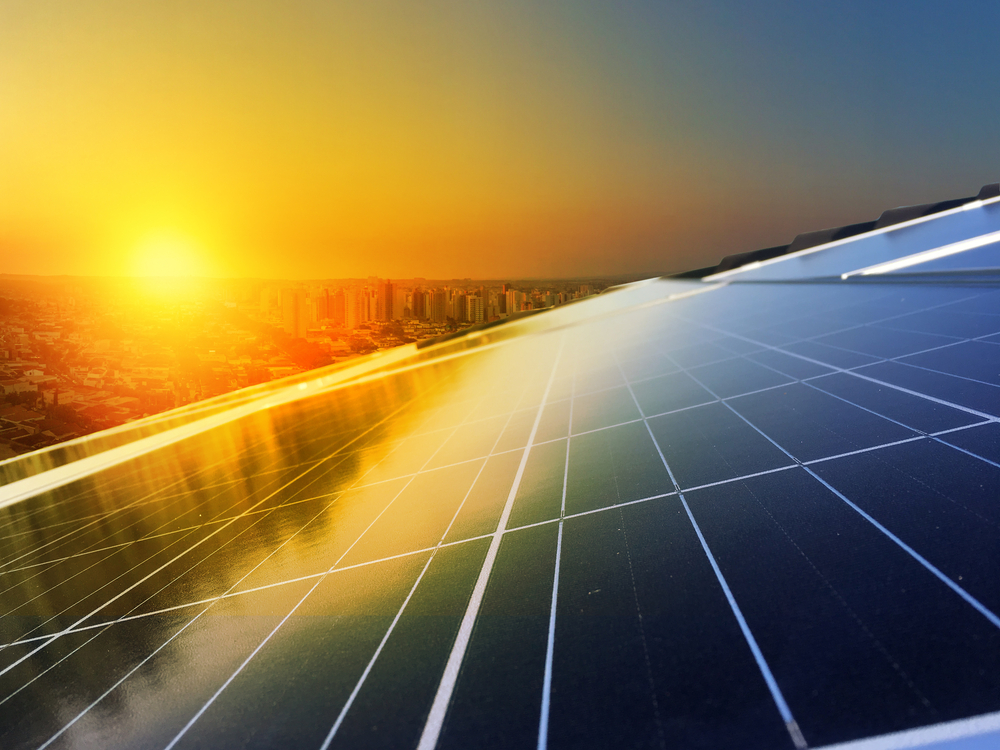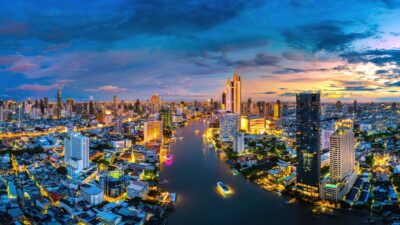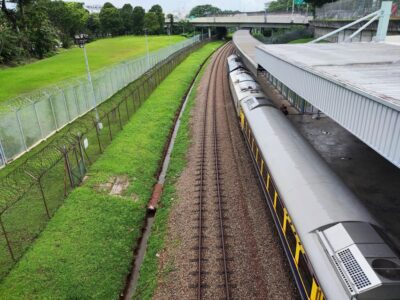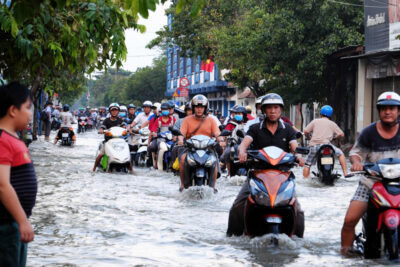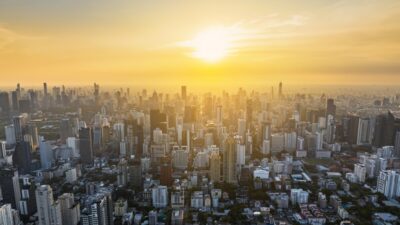Vietnam sets new rules to reward clean energy producers
Vietnam’s government has passed new regulations allowing homeowners and landlords to sell solar power back to the national grid for the first time, marking a further shift towards greener energy
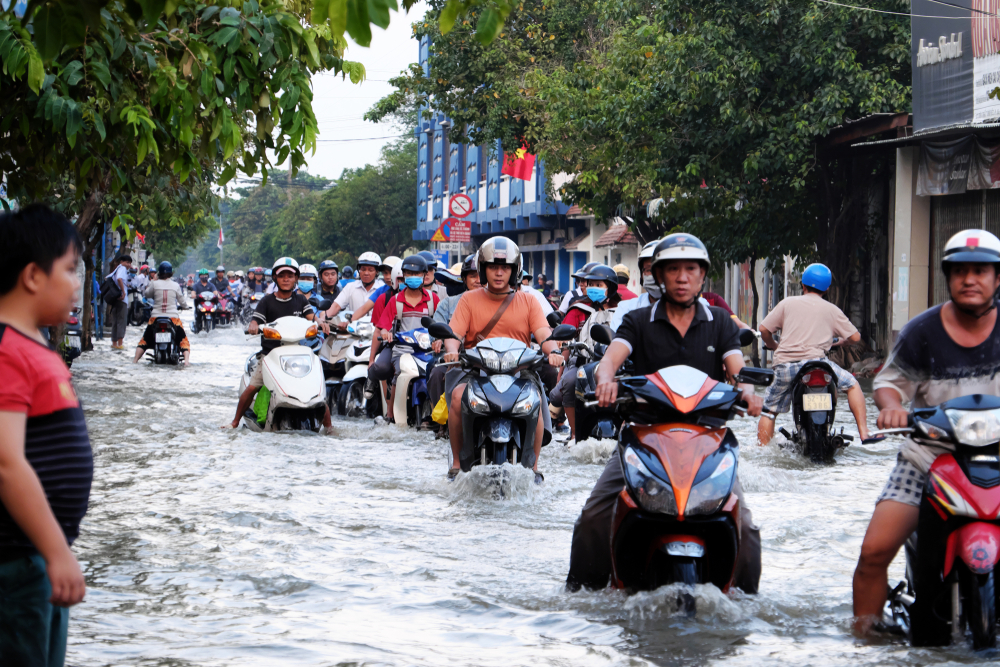
Located in central Dien Binh province, a recent project installed by Quynh An Solar Power Installation illustrates the current trajectory of rooftop solar in Vietnam. Completed in August last year—two months before the central government issued a landmark new decree on producing and selling rooftop solar power—the project features a seven-kilowatt photovoltaic system, installed on the roof of a luxury villa and imported from China.
Like many of the growing number of rooftop projects installed on roofs across Vietnam, it is primarily intended for onsite consumption. Promotional materials for the project do not mention selling excess electricity back to the grid, the unit price for which has yet to be agreed between the government and state utility EVN. However, recent reforms have made it legal to produce and sell solar power back to the national grid in Vietnam— mirroring legal changes in neighbouring China a decade ago that spurred its solar boom.
The initiative marks a crucial step in Vietnam’s broader energy overhaul. It is expected to influence demand from buyers and developers for residential and commercial buildings equipped with solar panels and photovoltaic systems.
In April, the central government unveiled the latest version of its energy strategy— Power Development Plan 8—which set a new target of 73 gigawatts of installed solar capacity by 2030. This represents a fivefold increase on its previous goal set just two years earlier. The upward revision appears to be motivated by Vietnam having already reached the original 2030 target, with total installed solar capacity hitting 18.6 gigawatts by the end of 2023, according to data from REN21, a group that monitors global renewable energy progress.
“The speed of increase in solar has been outstanding since the first plants were installed in 2018,” says Gavin Smith, director of Clean Energy Advisors, a consultancy focused on solar and other green energy solutions in Vietnam. “Solar energy is abundantly available, equipment prices have dropped dramatically, and batteries and control systems have become more affordable and reliable.”
This introduces a new income stream, making solar panel investments more financially attractive. Decree 58 is expected to have significant and largely positive impacts on homeowners and property owners in Vietnam
A greater focus on renewables makes sense for a tropical country home to Southeast Asia’s largest river delta—the Mekong. Climate change is a pressing issue in Vietnam. In its recent global report on climate risk and other market drivers, published in June, Savills identified Vietnam as particularly vulnerable to flooding and other climate-related impacts. “In a global context, Ho Chi Minh City is one of the most exposed cities to climate change,” says Troy Griffiths, deputy managing director of Savills Vietnam. “As an extension of the Mekong Delta, it regularly experiences flooding from tidal surges and heavy monsoon rains.”
Vietnam’s pivot to renewables is also driven by local concerns over energy supply and fast-rising demand, Smith notes. In 2019, EVN began importing more gas and coal to keep pace with rising consumption, leaving the national utility exposed to volatile global energy prices. He adds that the cost of solar power in Vietnam is currently around 20 percent lower than grid-supplied electricity from EVN.
New rooftop solar legislation promises cleaner and more affordable electricity for Vietnam’s fast-growing economy— GDP is forecast to grow by nearly seven percent this year, according to the World Bank. But despite the legislative progress, crucial pricing details for selling solar power back to the grid remain unresolved, says Vu Thanh Minh, head of the Hanoi office at law firm LNT & Partners. After issuing initial regulations to promote rooftop solar in October 2024, the government passed a replacement decree in March this year—Decree 58—which, for the first time, stipulated that building owners would receive financial compensation.
“This introduces a new income stream, making solar panel investments more financially attractive,” says Vu. “Decree 58 is expected to have significant and largely positive impacts on homeowners and property owners in Vietnam.”
For developers, investors, and homeowners, the new regulations provide the first legal framework for rooftop solar in Vietnam following years of ambiguity. Since 2018, the uptake of rooftop solar— particularly for commercial and industrial use—” has been enormous,” says Smith. He adds that the reforms reflect efforts by the government “to catch up with the conditions on the ground, where every form of investment in solar has been rapidly taken up and executed.”
Although pricing mechanisms remain pending, the clearer legal framework has already sparked foreign investor interest. Just days after the government affirmed building owners’ rights to sell electricity back to EVN, Thailand’s Banpu Next and Vietnam’s SolarBK signed a joint venture agreement to install at least 390 megawatts of rooftop solar power across the country.
Despite the lack of clarity around EVN’s plans to purchase solar power, the future of solar in Vietnam looks bright, says Smith. “Solar costs are stable and predictable, and the cost-benefit of installing it in domestic or commercial buildings is very clear.”
This article was originally published on asiarealestatesummit.com. Write to our editors at [email protected].
Recommended
Thailand advances digital finance with blockchain real estate push
Issues over marrying blockchain incentives to a physical asset class is hampering Thailand’s digital finance push
Johor Bahru emerges as a key economic partner to Singapore
Once regarded as a poor relation across the causeway, Johor Bahru is cementing its status as an integrated economic partner to Singapore
Vietnam sets new rules to reward clean energy producers
Vietnam’s government has passed new regulations allowing homeowners and landlords to sell solar power back to the national grid for the first time
Bangkok developers shift focus to safer low-rise and suburban projects
Concerns over Bangkok’s seismic safety in the wake of the recent Myanmar earthquake have prompted a shift toward low-rise developments

